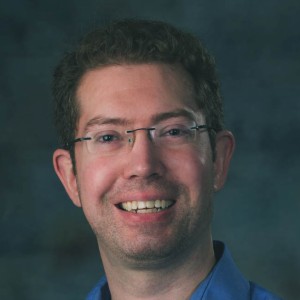Where did you go to school?
I did my B.A. (Cognitive science and English double-major) at Yale University. I did almost no psychology or neuroscience for my undergrad—my cognitive science major was mostly computational linguistics. After that, I didn't know what I wanted to do with my life, so I just applied to any job I seemed qualified for, and ended up doing a two-year stint as a research assistant at the Olin Neuropsychiatry Research Center in Hartford, CT, where I learned about fMRI and gradually got persuaded to do a Ph.D. (Literally the first day of that job, in 2003, I got a call from Google inviting me to interview there. This was when it was still a new-ish company that only did Internet search—no Gmail or anything else. But I don't regret the decision to stay in research... much.) I wasn't intending to go back to Yale for my Ph.D., but I ended up liking it the best of any of the programs I got into, so I headed back there for six more years, doing my dissertation in neuroscience in the lab of Marcia Johnson (no relation). Then I made the somewhat random choice to work for two years as an assistant professor of psychology at the University of Nottingham, Malaysia Campus, before ending up BACK at Yale one more time for a two year postdoc. And now I'm here at UNL!
What do you study?
My lab's research crosses several domains. We are interested in the intersection between perception and reflection—i.e., how the internal world of thoughts and memories connects with our processing of the external sensory (mostly visual) environment. Specifically, we use fMRI, EEG, and behavioral studies (+ some eyetracking) to ask questions about how information is represented in the brain in the reflective vs. perceptual domains, and how cognitive processes like attention function similarly or differently when directed to internal thoughts vs. external percepts. We also have an interest in how these processes change over the lifespan, particularly with regard to healthy aging, and some of our work has applications to mental illness as well.
What classes do you teach?
I'll be teaching Perception in the spring of 2016 and likely in the spring of 2017 as well. Other courses TBA! I'm also leading a lab-meeting-type informal "class" this semester on computer programming for psychologists and neuroscientists, which we may continue/re-offer if there is sufficient interest.
What is one thing that people might be surprised to learn about you?
Oh, so many things. I can juggle a bit, and at one time I was pretty good at making balloon animals (clearly I missed out on a career in the circus). Hanes was one of the big companies in my hometown, so I had two summer temp jobs working for them—one as a phone operator for their underwear catalogue, and another hauling around boxes of the stuff in a warehouse. When I was asked this question on a college application once, I made the mistake of telling them I can put one foot behind my head and hop around on the other—and then they asked me to do it at my interview. (I got in, by the way. And I can still do it.) While in college, I was both the editor of a tabloid humor magazine and the leader of an improvisational children's theater troupe. And once, also in college, I accidentally evacuated my dorm in the middle of the night by falling off a pogo stick onto a fire alarm. (You'll have to buy me a drink to get the full story behind THAT one.) And I am the thus-far-undisputed Buffalo-chicken-wing-eating champion of the Yale Interdepartmental Neuroscience Program.

